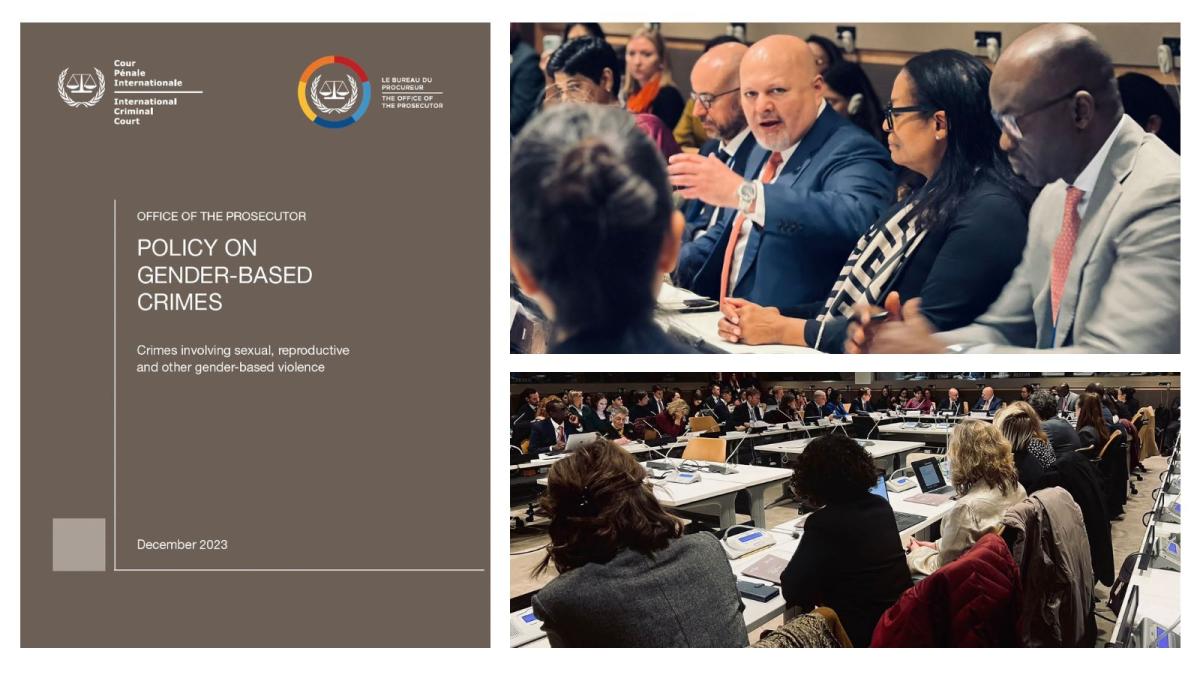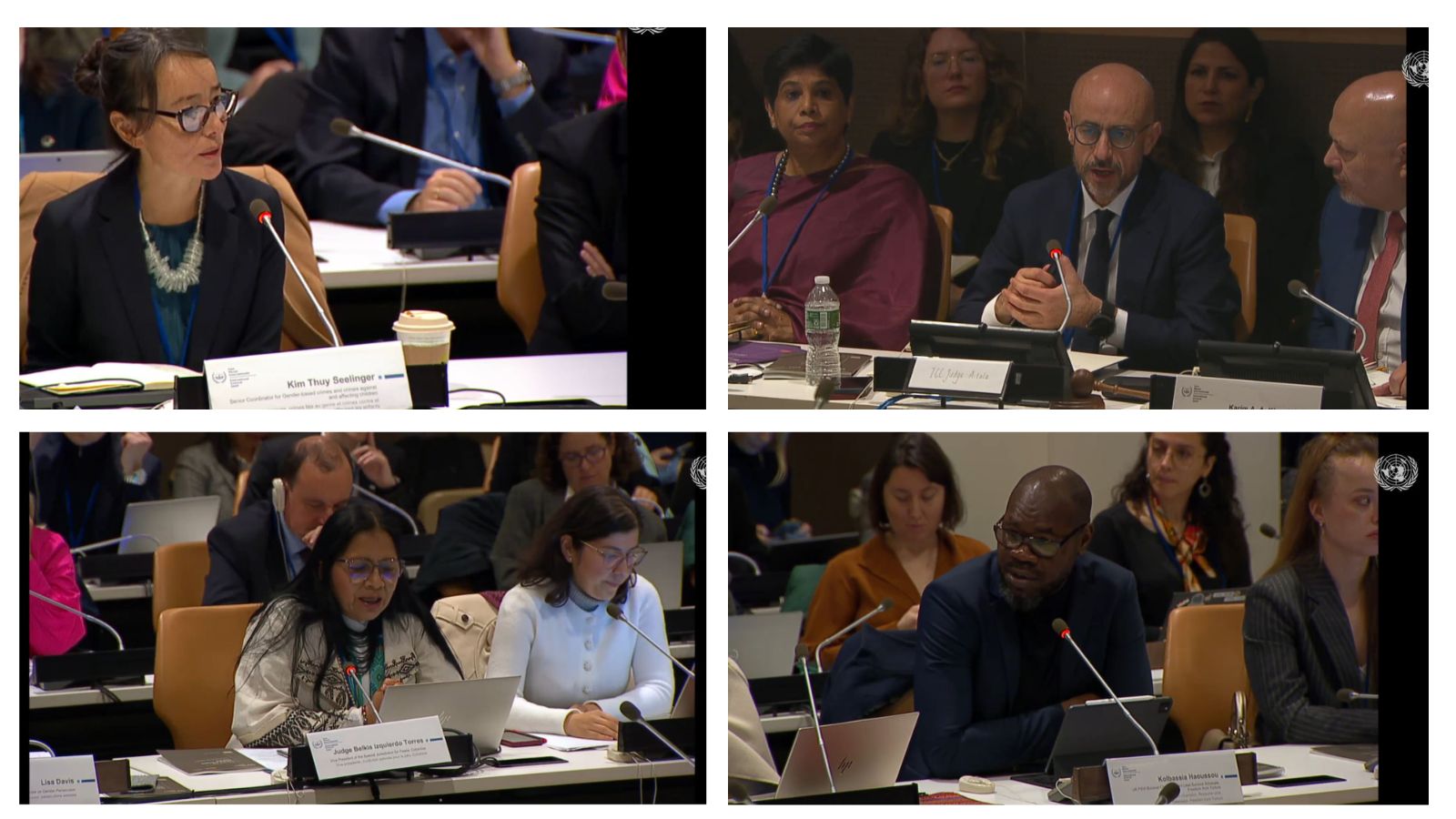Office of the Prosecutor of the International Criminal Court publishes new Policy on Gender-based Crimes: Statement by ICC Prosecutor Karim A.A. Khan KC

After nearly a decade of lessons learned, my Office has launched a new Policy on Gender-based Crimes that will guide and strengthen our work in rigorously investigating and prosecuting these historically neglected atrocities. A concrete expression of our commitment to prioritise gender-based crimes (GBC), this Policy provides clarity and direction and will allow us to fully consider GBC across all Situations and throughout all stages of our work.
Gender-based crimes are hugely underreported. Survivors are often reluctant to speak out about their experiences for many reasons, including stigma, fear of retaliation and rejection, or unfamiliarity with the criminal process. And yet many hunger for justice. We must do everything we can to create a safe space for survivors to come forward to teach us what they know, what they have experienced. Then we must take this forward to court, building the strongest cases possible. This is our charge. It is our moral obligation.
The Policy we now present to you represents a fundamental renewal of the 2014 OTP Policy Paper on Sexual and Gender-Based Crimes. Through it, my Office articulates our position that essentially all crimes under the Rome Statute can involve forms of sexual, reproductive or other gender-based violence, regardless of whether they have traditionally been seen as such.
The new Policy also identifies principles underlying our work on GBC, including adopting an intersectional perspective, acknowledging and overcoming myths, stereotypes and misconceptions, and taking a survivor-centred, trauma-informed approach in all that we do. We further recognise that only after a thorough gender-competent investigation and careful intersectional analysis can the gendered nature, meaning, and impact of conduct in a case be determined.
When it comes to Rome Statute crimes involving sexual, reproductive, and other forms of gender-based violence, we must make sure we apply this lens – and understand what we might see – in all our Situations, including Afghanistan, Bangladesh / Myanmar, the Central African Republic, Darfur, Sudan, Mali and the State of Palestine.

This Policy will ground us and inform our internal operational guidance. I also envision it to be a living document, applied from preliminary examinations until sentencing and reparations and subject to review as new lessons are learned.
Along with my Office’s Policy on the Crime of Gender Persecution, launched last year, and the Policy on Children to be issued this week, this publication is part of a range of initiatives to enhance our capability and standards in addressing GBC and crimes against or affecting children. These themes are core to our Strategic Plan 2023-2025 where we have committed to the effective investigations and prosecutions of such crimes. Through these policies, we also aim to contribute to the development of international jurisprudence and best practice.
I would like to express my gratitude to Prof. Kim Thuy Seelinger for leading the policy review process, guided by Deputy Prosecutor Nazhat Shameem Khan. Prof Seelinger is my former Special Adviser on Sexual Violence in Conflict, and now my Office’s first Senior Coordinator for Gender-based Crimes and Crimes Against or Affecting Children. I am also grateful to my special advisers who provided regular guidance throughout the process – Véronique Aubert (Crimes Against and Affecting Children), Prof Lisa Davis (Gender Persecution) and Prof Patricia V. Sellers (Slavery Crimes).
The Policy is a result of an intensively consultative process involving staff, including from the OTP’s Gender and Children Unit, civil society, the academy, and affected communities. A global call for submissions was followed by rounds of input in July and September 2023 from 128 external experts from 40 countries. We are grateful to all of the partners of the Office that have contributed to what I believe represents a paradigm shift in our approach to gender-based crimes. We hope the Policy is a valuable resource for colleagues even beyond the ICC.
Building on the strong foundation provided by this collective and inclusive process, we can now translate this policy into action in our daily effort to put victims, survivors and witnesses at the centre of our work.